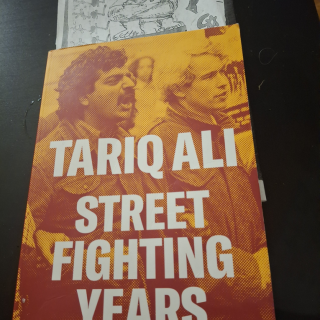Weapons of Math Destruction: How Big Data Increases Inequality and Threatens Democracy by Cathy O’Neil
Like millions of students, I never liked math. I thought it scary, mysterious and evil. I joke that I can’t even sit next to math professors during meetings! Generally a bright student with high grades, my lack of prowess at math let me down every time. And then in the ninth grade, the lottery placed me in Arnold Anderson’s general math class. He had a reputation for transforming struggling math students into, if not math wizards, students who would see that math was no longer mysterious and could even be interesting and—borrowing a term from my students—fun. (My favorite mathematical task? Balancing equations.) It was the first time I was interested in math, liked math and earned As in math. Alas, that was the last time for me; I managed to make it all the way to a PhD without math. I came to ruefully regret my lack of math prowess when I began my career in higher education. I was the person who always interrupted meetings so that someone could explain the math behind the data so ubiquitous in our field.
The hook that led me to review Weapons of Math Destruction was its subtitle: How Big Data Increases Inequality and Threatens Democracy. Like many people, I had seen the racist math tests that have periodically popped up in the news for the last twenty or so years.
“Daequon pimps six hos who charge $85 a trick. He spends $800 a day on crack. How many tricks must each ho turn every day to supply his habit?” I never thought about the math as racist, though; just the fact that it was being used in a racist way. (I wondered, too, what teacher was stupid enough to give out an assignment like this!) But according to Cathy O’Neil, math is racist because it uses algorithms that influence all our lives to an extent that can sometimes make or break us.
In its simplest forms, an algorithm is a set of rules or procedures used to solve a particular problem. But algorithms are developed by human beings whose calculations are sometimes in error, and whose opinions and biases are sometimes deeply embedded within the codes at times without their realization. Even if errors are detected they are sometimes not corrected. Once the models are established, they follow us from cradle to grave. Algorithms determine whether we can obtain credit, how much car insurance we pay, where we live, our chances of being accepted into college or being sent to prison. O’Neil also charges that they are secretive, and the people who develop them are unknowable and unaccountable. And while the motives for developing these formulae are often good, they just as often serve to reinforce some of our worst tendencies; the vast majority of us neither know this or are equipped to fight against it. So Algorithms send millions of people spinning in revolving doors from which they cannot escape. Society’s faith in and love of big data traps millions of people in underperforming schools, impoverished neighborhoods, determines the length of prison sentences and stunts our careers.
O’Neil earned a PhD in math from Harvard University and was a college professor. She eventually moved into the finance world, serving as a quantitative analyst–a quant in Wall Street lingo–who specializes in the use of math and statistics to judge financial and risk management issues. O’Neil quickly became disillusioned with how mathematics was being used to bet against people’s retirement prospects, and left Wall Street. Since leaving that position, she has worked with the Occupy Movement, several start-ups and contributed to an award-winning episode on big data for the PBS documentary series Frontline.
Weapons of Math Destruction is a thoughtful approach to explaining the way mathematics can make difficult the lives of those who can least afford it. O’Neil recognizes the genie that is big data cannot be put back into the bottle, but it convinced it can be improved, made more transparent and used more ethically.
So apparently I was right: math is evil.



